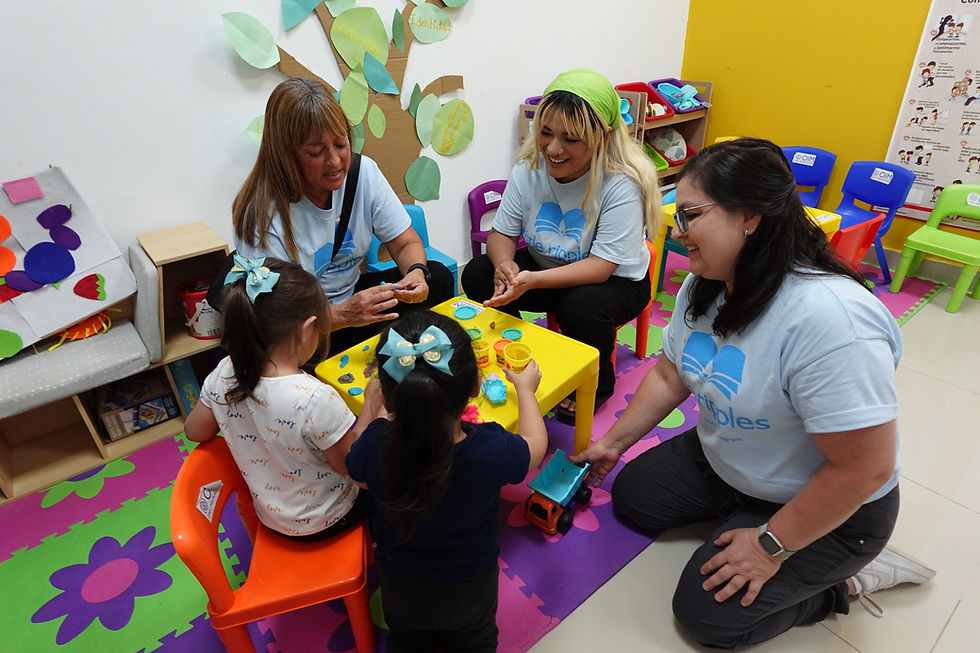The Gift of Mindfulness
- Jessica Birzin
- Nov 7, 2016
- 2 min read
[et_pb_section fb_built=”1″ admin_label=”section” _builder_version=”3.22″][et_pb_row admin_label=”row” _builder_version=”3.25″ background_size=”initial” background_position=”top_left” background_repeat=”repeat”][et_pb_column type=”4_4″ _builder_version=”3.25″ custom_padding=”|||” custom_padding__hover=”|||”][et_pb_text admin_label=”Text” _builder_version=”3.27.4″ background_size=”initial” background_position=”top_left” background_repeat=”repeat”]
Joslyn and I feel so fortunate to have the chance to teach mindfulness in the Darfuri Refugee Camp Goz Amer in eastern Chad with iACT. The iACT team—tiny but mighty!—has presented us with an opportunity to share the teachings that have changed our lives. Through their compassionate humanitarian work, we have a chance to help ease the suffering of refugees in our world by offering methods and practices that lead to comfort and inner freedom.
A while back, iACT founders Katie-Jay and Gabriel emailed me looking for someone who had a background in early childhood education and could teach mindfulness. When I read their description of the person they were looking for, I realized that person was me! My mindfulness teaching comes from a lifelong study and practice of Buddhist meditation and psychology, combined with graduate work in developmental psychology, being a psychological consultant in schools, and a psychotherapist working with kids and families for 25 years. So I answered her email. Katie-Jay and Gabriel took the time to come over to my house for a meeting almost immediately, and just as quickly I fell in love with them both and with their mission.
Easing the suffering of refugees around the world is a deeply meaningful effort to me. After decades of mindfulness teaching and practice, I can no longer view the world the way I did before. I no longer feel safe in my separateness. I feel intimately connected to all beings in the same way the ocean is part of every wave. When one person is hungry or homeless or a refugee, I can connect to that part of myself that also feels hungry, or homeless or like a refugee. Feeling this sense of deeper belonging to the world in this way, I have to ask myself: how can I act? How can I help in a way that matches my unique interests and skills? This opportunity to bring my expertise in mindfulness to the work of iACT seems a perfect answer.
Mindfulness is a very simple process, but it does require some training in being intentionally present, compassionate, and aware. Mindfulness concerns each person and their world in this very moment—not the moment before or the next one—just full awareness of the present moment, of “now-ness.” This is the only moment people really have to live. When individuals learn to compassionately recognize, acknowledge, and accept their own feelings and thoughts as temporary states, they can then focus on present reality, and begin the heal past negativity. Mindfulness has been widely researched and used as a therapeutic method that has helped thousands of individuals from all walks of life.
It shouldn’t be radical to begin by asking refugees what THEY want and need, it should be standard practice! But it’s not. This is where I feel an immediate affinity with iACT’s approach to working with refugees. After years of reading about the growing number of millions of refugees in our world, at last, maybe, I have the opportunity to be part of the solution.
*Trudy Goodman and Joslyn Hitter are a part of iACT’s 25th trip to the refugee camps in eastern Chad. They will be helping the team as we work to even further improve our mindfulness education, and train members of the refugee community to lead the program.[/et_pb_text][/et_pb_column][/et_pb_row][/et_pb_section]


